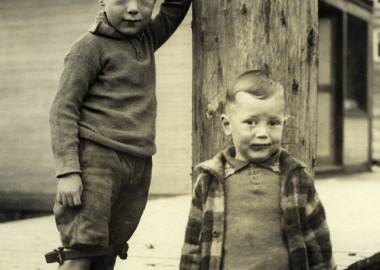
Close your eyes. Imagine a car commercial. What do you see?
Do you see a luxurious brand storytelling movie that is part advertisement, part Bond? Is it sunny days and open roads as beautiful young things cruise to their next adventure? Is it a smiling, affluent couple cooing in the rearview mirror as they watch their sleeping toddler in the back seat?
All of these are common tropes in automobile advertising. The manufacturer is trying to underline how the car is offering glamour, or safety, or escape from the mundane. Above all, they are trying to connect the car with happiness. This is not a radical strategy. Many brands try to associate their product with a promise of happiness. It’s kind of how advertising works.
But what if you did something different?
Meet The Family
Ford Denmark’s new campaign is summarized by the tagline “success against the odds”. Try to imagine a car commercial with that tagline. Sketch out the plot in your mind.
Did your ad feature divorce? (Follow up question: can you think of any ads that you’ve seen that feature divorce?)
Ford’s newest ad, the first in this new campaign, is a brand storytelling movie that is rooted firmly in the struggles of their target market. The divorce rate for middle class Danes is the highest in the world. The director Daniel Kragh-Jacobsen related to Adweek that he came to realize that the car was a common environment for divorced couples attempting to co-parent.
Divided into three short segments, the family negotiates disappointment, anger and finally fear. The final shots are laced with tenderness and hope, but they resolutely avoid easy answers or fairytale endings.
This would be ambitious storytelling for a filmmaker looking to finagle an invite to the Oscars. It’s a risky strategy for any advertiser. I would also posit that it’s brilliant, brave and mesmerizing.
Great marketing is about differentiation. You can automatically summon a car commercial to your mind, but can you remember the make or model of the car? It’s hard to recall the details of many of the commercials that we see; they hit the same cheerful beats. What if your marketing told a story that made you unforgettable?
We’ve discussed other ways that brands tell stories through video, but this story is notable because it’s not a hero narrative. It is mostly a tragedy. So often, sadness is seen as a kind of third rail of marketing. No brand wants to be associated with sadness or anger for legitimate reasons. However, sadness in and of itself isn’t toxic to your brand. It can be a powerful way for brands to build genuine connection with their audiences. Often, a goal of content strategy is for brands to express that they understand their customers; they are part of their tribe. What if your audience is experiencing genuine challenges? How do you respectfully move into that space?
Authenticity Can Be Dangerous (And Transformative)
It’s easy to cite examples of how brands have mishandled tragic events and paid dearly for it. Think of Kenneth Cole’s famous stumble in regards to Egyptian protests against then-president Hosni Mubarak. The only thing that Kenneth Cole earned was the ire of Twitter, as everyone chimed in with #KennethColeTweets. The lesson that everyone seems to want to take from this is to avoid engaging in anything controversial, but really, we should learn about how to engage with authenticity.
Why does the Ford brand storytelling movie work where others have failed? It fundamentally respects the story. It doesn’t try to push Ford to the forefront of the story; the cars appear naturally in the narrative. The family is populated by round characters, not marketing stereotypes. In a time of building brand persona that are meant to represent archetypes of our consumers, Ford has developed characters that are resolutely human. This humanity provokes a deep emotional reaction in their audience.
When you’re considering how to tell your brand story, develop your personas. Consider where your audience is. Drill down into your metrics. Do all the things that marketers are supposed to do. Just don’t forget that you are selling to human beings, not ideas. Then people will remember you – for all the right reasons.
To dig deeper into authenticity and your brand, we recommend our Story Director John Burns’ take on honest storytelling.





